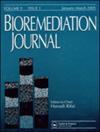生物炭改良剂有助于减少家禽粪便堆肥过程中的抗生素抗性细菌和重金属
IF 1.9
4区 环境科学与生态学
Q3 ENVIRONMENTAL SCIENCES
引用次数: 3
摘要
本文章由计算机程序翻译,如有差异,请以英文原文为准。
Biochar amendment aids in the reduction of antibiotic-resistant bacteria and heavy metals during composting of poultry litter
Abstract Poultry litter is a complex mixture comprising heavy metals feed scraps, antibiotics, water, feathers. Although treatment of these wastes has not currently received much attention in Nigeria, poultry litter is widely used as source of organic fertilizer for subsistence farming by rural and urban areas of the country. It is essential to effectively stabilize the organic waste because the continuous use of the poultry manure in agricultural activities poses great threat to the health of the soil environment due to heavy metals and antibiotic-resistant pathogens. Composting is an effective method for stabilizing organic manure toward reducing the heavy metals content. Hence, the present study determined the effect of biochar additives on heavy metals and antibiotic-resistant bacteria removal during composting of poultry litter (PL), vegetable waste (VW), and corn stalk (CS). To this end, three composting trials were set-up comprising control: PL (57.58%) + CS (38.41%) + VW (4.01%), TX: control + 5% biochar, and TY: control + 10% biochar. The composting pile was also spiked with heavy metals (Pb, Cu, Zn, Cr, Cd, and As) and their removal efficiencies were monitored. To enumerate the antibiotic-resistant bacteria in the compost, Nutrient agar was supplemented with antibiotics such as ampicillin, chloramphenicol, amoxicillin, ciprofloxacin, gentamycin, and tetracycline. The outcome of the investigation showed that the highest reduction in total coliform from 3.68 to 1.06 log10 CFU g−1 was observed in TY. The addition of 10% biochar in TY also reduced the concentration of antibiotic-resistant bacteria in all the treatments to an undetectable limit compared to TX (5% biochar) and control (no biochar). The biochar-aided heavy metals removal followed a first-order path. With the exception of Cd removal where TX showed the best removal rate (k = 0.1582), the TY resulted in best removal rates for Pb, Zn, Cu, Cr, and As. The decreasing order of heavy metal removal rates from TY is as follows: Cu (k = 0.2025) > Cr (k = 0.1403) > Pb (k = 0.1300) > Zn (k = 0.1290), > As (k = 0.090). Therefore, biochar additives during composting of poultry litter should be encouraged amongst the rural farmers.
求助全文
通过发布文献求助,成功后即可免费获取论文全文。
去求助
来源期刊

Bioremediation Journal
ENVIRONMENTAL SCIENCES-
CiteScore
5.30
自引率
0.00%
发文量
36
审稿时长
9 months
期刊介绍:
Bioremediation Journal is a peer-reviewed quarterly that publishes current, original laboratory and field research in bioremediation, the use of biological and supporting physical treatments to treat contaminated soil and groundwater. The journal rapidly disseminates new information on emerging and maturing bioremediation technologies and integrates scientific research and engineering practices. The authors, editors, and readers are scientists, field engineers, site remediation managers, and regulatory experts from the academic, industrial, and government sectors worldwide.
High-quality, original articles make up the primary content. Other contributions are technical notes, short communications, and occasional invited review articles.
 求助内容:
求助内容: 应助结果提醒方式:
应助结果提醒方式:


